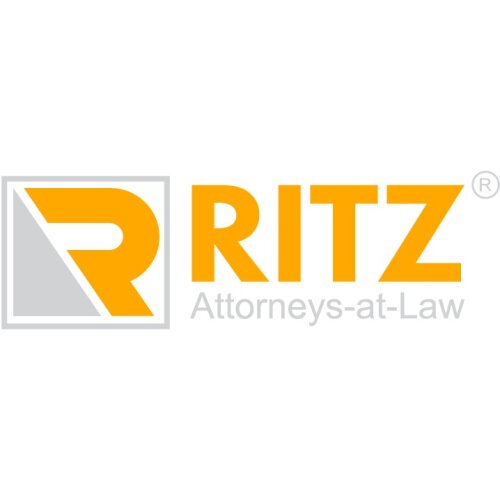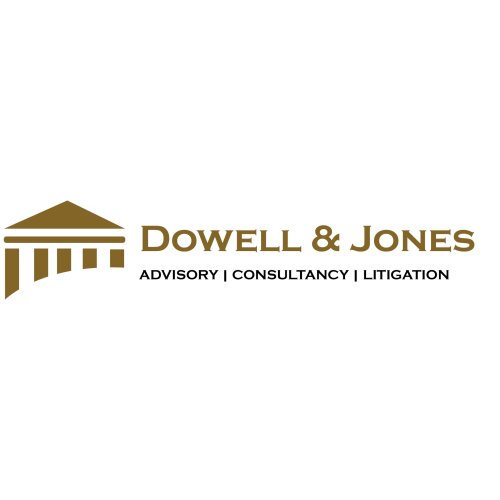Best Energy Regulatory Law Lawyers in Malawi
Share your needs with us, get contacted by law firms.
Free. Takes 2 min.
Or refine your search by selecting a city:
List of the best lawyers in Malawi
About Energy Regulatory Law in Malawi
Energy Regulatory Law in Malawi governs the production, distribution, supply, and consumption of energy resources, particularly electricity, petroleum, and renewable energy. The Energy Regulatory Authority (MERA) is the national regulator responsible for creating policy, issuing licenses, monitoring compliance, and protecting the interests of consumers and investors in the energy sector. The law seeks to ensure a safe, reliable, and sustainable supply of energy and to encourage competition and investment within the market.
Why You May Need a Lawyer
Legal issues in the energy sector can be complex due to technical regulations, licensing requirements, and contract negotiations. Individuals or companies often seek legal assistance for reasons such as:
- Applying for or renewing energy generation, distribution, or sales licenses
- Understanding compliance with MERA regulations or challenging regulatory penalties
- Contract drafting and negotiation between suppliers, contractors, or investors
- Land acquisition and property rights issues linked to energy projects
- Resolving disputes regarding tariffs, access to infrastructure, or supply interruptions
- Guidance on renewable energy investments and project approvals
- Managing environmental compliance and community engagement obligations
- Protecting consumer rights regarding energy billing or service quality
Local Laws Overview
The key legal framework for the energy sector in Malawi includes:
- Energy Regulation Act: Establishes MERA and outlines functions, licensing, tariff setting, and regulatory powers.
- Electricity Act: Governs the generation, transmission, distribution, and sale of electricity. Sets standards for safety, tariffs, and connections.
- Petroleum (Exploration and Production) Act: Regulates the exploration, extraction, and distribution of petroleum products.
- Rural Electrification Act: Focuses on expanding electricity access in rural areas, often involving public-private partnerships.
- Environmental Laws: Require Environmental Impact Assessments (EIAs) for major energy projects and set standards for sustainability.
In general, anyone wishing to operate in the energy sector must obtain appropriate licenses, comply with safety and quality standards, and adhere to consumer protection rules. The law also encourages the use of renewable energy sources and supports private sector participation through clear regulatory processes.
Frequently Asked Questions
What does MERA regulate?
MERA (Malawi Energy Regulatory Authority) regulates the production, storage, transportation, and sale of energy, including electricity, petroleum products, gas, and renewables. It sets tariffs, issues licenses, monitors compliance, and investigates consumer complaints.
Do I need a license to generate electricity for personal use?
Generally, you do not need a license for small-scale electricity generation for personal or household use, such as solar panels at home. However, if you plan to distribute or sell electricity, a license is required.
How can I apply for an energy sector license?
Applications are made to MERA and usually require detailed documentation, including project plans, technical feasibility, environmental impact assessments, and proof of financial capacity. Legal assistance can help ensure your documents comply with all requirements.
What are the penalties for operating without a license?
Operating without a required license can result in fines, closure of the facility, confiscation of equipment, or prosecution under relevant laws.
How are energy tariffs set?
Tariffs are determined by MERA, considering production costs, market conditions, investment levels, and consumer protection. MERA consults with stakeholders before setting or adjusting tariffs.
Can a consumer file a complaint about energy services?
Yes. Consumers can file complaints directly with MERA regarding billing, supply interruptions, safety concerns, or other service issues. MERA investigates complaints and can require service providers to address them.
Are there incentives for investing in renewable energy?
The government encourages investment in renewables through streamlined licensing, technical support, and financial incentives such as tax benefits or grants in certain cases.
What environmental permits are needed for energy projects?
Most energy projects require an Environmental Impact Assessment (EIA), approved by the Environmental Affairs Department. Additional permits may be needed depending on project size and location.
What happens if I want to sell energy back to the national grid?
You must obtain a generation license and a power purchase agreement with the Electricity Supply Corporation of Malawi (ESCOM). Grid connection standards and tariff arrangements will apply.
How can I challenge a regulatory decision by MERA?
If you disagree with a decision by MERA, you may request an internal review, appeal to the Minister of Energy, or seek judicial review through the courts. Legal representation is recommended for these processes.
Additional Resources
For more information or assistance, the following agencies and organizations can be helpful:
- Malawi Energy Regulatory Authority (MERA) - Main regulator, provides licensing, guidelines, and consumer protection services.
- Electricity Supply Corporation of Malawi (ESCOM) - National utility, manages grid operations and power purchase agreements.
- Ministry of Energy - Policy direction, rural electrification programs, and renewable energy promotion.
- Environmental Affairs Department - Approves environmental impact assessments and monitors compliance.
- Malawi Law Society - Directory of lawyers specializing in energy law.
Next Steps
If you believe you need legal assistance in the field of Energy Regulatory Law in Malawi, consider taking the following steps:
- Gather all relevant documents, such as contracts, correspondence, license applications, or notices from regulators.
- Identify the specific issue or question you need help with, whether it is licensing, compliance, disputes, or contracts.
- Contact a lawyer or legal firm with experience in energy regulatory matters, ideally one familiar with MERA proceedings and energy sector contracts.
- Consult with relevant regulatory agencies, such as MERA, for initial information or clarification before engaging a lawyer where appropriate.
- Prepare a list of questions for your lawyer or regulator to ensure you understand all your legal obligations and options moving forward.
- Keep thorough records of all communications and decisions throughout the process.
Early legal advice can help you avoid costly mistakes, resolve issues more efficiently, and ensure your energy projects or interests are protected under Malawian law.
Lawzana helps you find the best lawyers and law firms in Malawi through a curated and pre-screened list of qualified legal professionals. Our platform offers rankings and detailed profiles of attorneys and law firms, allowing you to compare based on practice areas, including Energy Regulatory Law, experience, and client feedback.
Each profile includes a description of the firm's areas of practice, client reviews, team members and partners, year of establishment, spoken languages, office locations, contact information, social media presence, and any published articles or resources. Most firms on our platform speak English and are experienced in both local and international legal matters.
Get a quote from top-rated law firms in Malawi — quickly, securely, and without unnecessary hassle.
Disclaimer:
The information provided on this page is for general informational purposes only and does not constitute legal advice. While we strive to ensure the accuracy and relevance of the content, legal information may change over time, and interpretations of the law can vary. You should always consult with a qualified legal professional for advice specific to your situation.
We disclaim all liability for actions taken or not taken based on the content of this page. If you believe any information is incorrect or outdated, please contact us, and we will review and update it where appropriate.
Browse energy regulatory law law firms by city in Malawi
Refine your search by selecting a city.
















